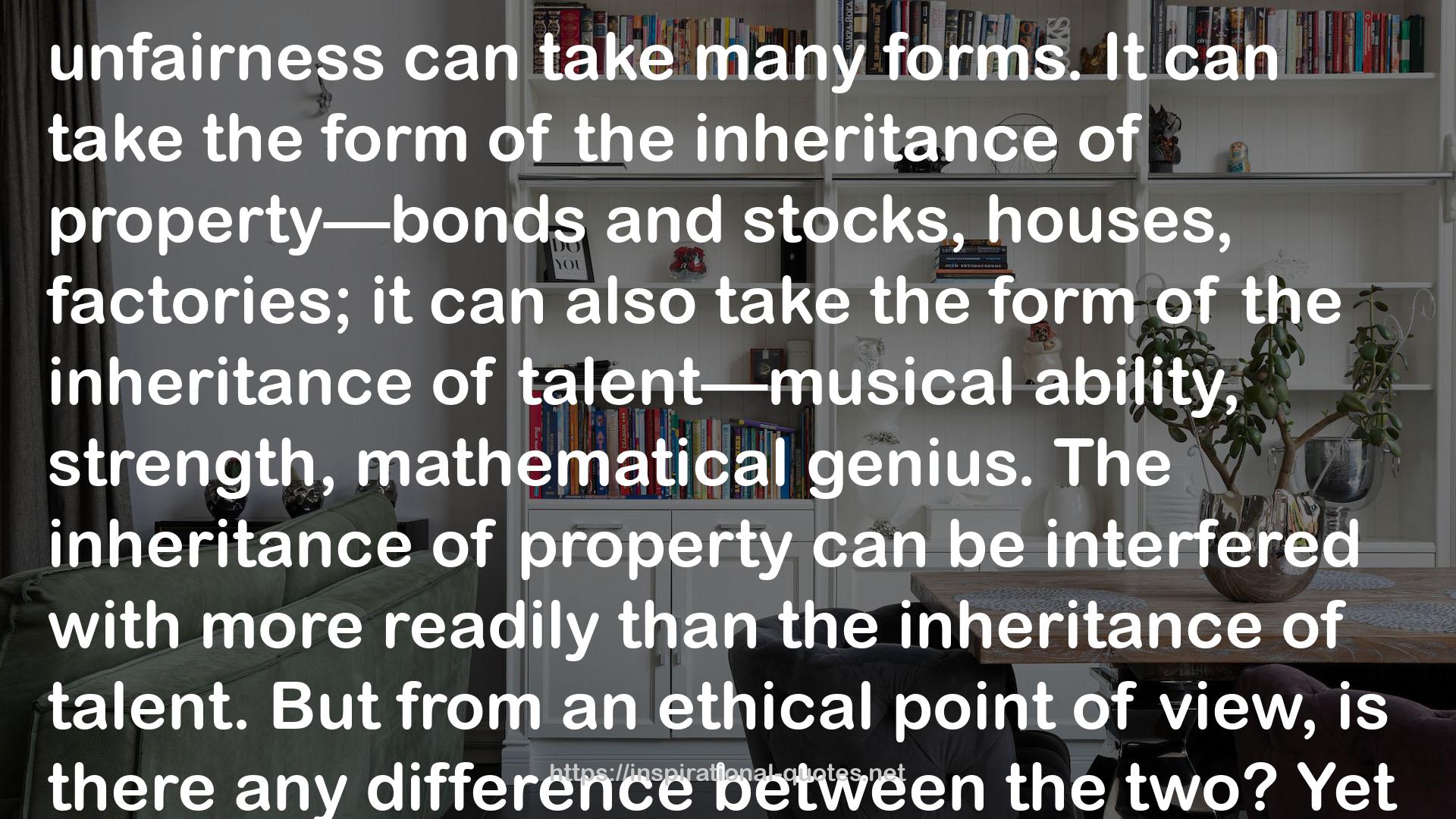" unfairness can take many forms. It can take the form of the inheritance of property—bonds and stocks, houses, factories; it can also take the form of the inheritance of talent—musical ability, strength, mathematical genius. The inheritance of property can be interfered with more readily than the inheritance of talent. But from an ethical point of view, is there any difference between the two? Yet many people resent the inheritance of property but not the inheritance of talent. Look at the same issue from the point of view of the parent. If you want to assure your child a higher income in life, you can do so in various ways. You can buy him (or her) an education that will equip him to pursue an occupation yielding a high income; or you can set him up in a business that will yield a higher income than he could earn as a salaried employee; or you can leave him property, the income from which will enable him to live better. Is there any ethical difference among these three ways of using your property? Or again, if the state leaves you any money to spend over and above taxes, should the state permit you to spend it on riotous living but not to leave it to your children? "
― Milton Friedman , Free to Choose: A Personal Statement
